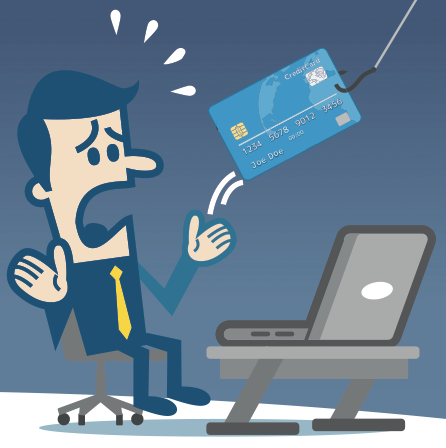Identity theft can happen to anyone. Since more people are going online to shop, bank, file taxes, etc., there’s an increased risk of savvy thieves stealing the personal information of millions of consumers. Even if you’re careful, a thief may be able to attain your information by hacking into the systems of larger businesses, as millions of people learned last year with the Equifax data breach, which impacted more than just Americans; it impacted 100,000 Canadians as well.(1) 
In this breach, hackers stole personal information and credit card numbers through a consumer website application that was intended for US consumers. Equifax Canada’s systems were not impacted. Stolen information allows thieves to open bank accounts and lines of credit, open new credit cards and more. What can you do if you find out your information has been compromised?

The rise of data breaches
Equifax isn’t the only company to endure a data breach in the last few years. Other notable data breaches include CVS and Walmart Canada; in both cases, credit card information was compromised by way of the companies’ online photo processing websites. According to a recent study, more than 59 data breach incidents occurred in the first six months of 2017, exposing the personal information from approximately 2.1 million records.(2) As a result, the Canadian government is considering new regulations that would require companies to report data breaches; at the provincial level, only Alberta currently requires companies to do so.(2)
Additionally, even email providers aren’t safe from data breaches. It’s recently come to light that Yahoo’s 2013 breach, in which names, email addresses, telephone numbers, dates of birth, passwords and security questions were stolen, impacted all of its three billion users, including many Canadians. People were encouraged to change their passwords, as well as their security questions and answers.
What to do if you’re the victim of a data breach
As we’ve seen, you may not know you’re the victim of a breach until you hear about it on the news. The first thing you should do if you suspect you’re a victim is to check your credit reports from both Equifax Canada and TransUnion Canada. The report is free if you request by mail. The process may vary by credit bureau so refer to their websites for instructions.
Next, monitor your credit card and bank accounts for unauthorized activity and review each charge carefully. Equifax Canada allows Canadian adults to place an alert on their credit files.
The company also offers three types of file alerts:
1. Identity alerts for residents of Manitoba and Ontario;
2. Lost or stolen alerts if a person has misplaced their personal identification or financial information or had it stolen; and
3. Fraud alerts in response to suspicious credit applications or unauthorized charges.
These alerts warn creditors that your information was stolen and prompts them to verify the identity of anyone looking to get credit in your name. In Manitoba and Ontario, credit bureaus are required to offer credit alert services to residents. However, even with these tools available, it is still up to you to monitor your credit and report any unauthorized or suspicious activity.
///...CP
Sources:
1. The Globe and Mail
2. CBC.ca
3. Competition Bureau